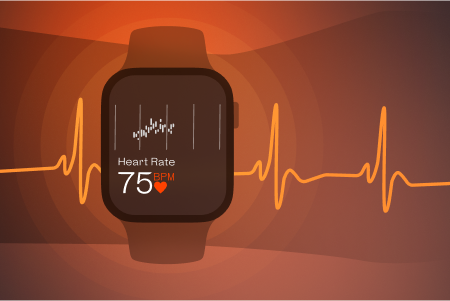
Measuring Resting Heart Rate
From manual pulse counts to the latest in app technology, dive into the transformative journey of heart rate monitoring
Home » Activity & Workouts » Why Fitness Is Important And How To Actually Enjoy It

Updated Aug 12, 2022 by Welltory Team
Though it’s hard to believe, some people actually get a kick out of sweating at the gym.
You’ve known about the importance of physical activity since your mandatory gym class in school, and though there are one million articles written about its benefits, chances are no one told you how to make fitness a thing you actually want to do.
Sure, you know that it will keep you from keeling over when you’re ninety, but Netflix and your couch are waiting for you now. To make working out a regular habit, you’ll need to find your motivation and an activity you actually like, as well as to set goals that will help you stay focused. Finally, you’ll up your chances of success with the right support, and Welltory has several features that will help you stay on track, give you tons of feedback, and let you see your progress.
The threat of high cholesterol rarely gets anyone to show up at the gym, but there are a host of immediate benefits of being physically active that just might. These include better mental health, glowing skin, more brain power, higher self-esteem, and even a better sex life.
There is a wealth of research that shows that even one exercise session can leave you feeling happier, and less stressed. While you’re working out, your brain releases a host of neurotransmitters, including serotonin and endorphins that rule your brain’s pleasure and reward center. At the same time, working out decreases levels of certain stress hormones, including adrenaline and cortisol, which is a big plus if you’re anxiety-prone. Essentially, exercise turns up the dial on feel-good chemicals, while hitting the mute button on the ones that leave you feeling down. In fact, it’s so effective that many studies have found it to be a useful tool for alleviating depression. Additionally, fitness can improve sleep quality, which in turn can make your days more pleasant.
While you’re working out blood and oxygen are sent to the brain, which then releases hormones to the area responsible for memory and learning. The result? A boost in your ability to concentrate, and more energy, so you can get it done. Exercise can also literally make your brain grow. When you’re exercising, a protein called the brain-derived neurotrophic factor (BDNF) is released. BDNF is one of the key players in the growth of new brain cells. Exercise also improves your memory, and how quickly you process information, essentially making you more efficient at any task.
People who exercise regularly report higher-self esteem, as well as an improved self-image. Whether it’s watching your muscles get toned, feeling yourself getting stronger, or experiencing a sense of accomplishment for showing up, a fitness routine will make you see yourself in a whole new way. Though not as vital as this heightened sense of self, exercise can also make your skin glow as more oxygen is delivered to the skin’s cells. Physical activity has also shown to boost libido in women, and one study found that just a 20 minute cycling session increased arousal in women. Working out regularly also helps men with erectile dysfunction, so whatever your gender identity, feeling frisky can be a great side effect.
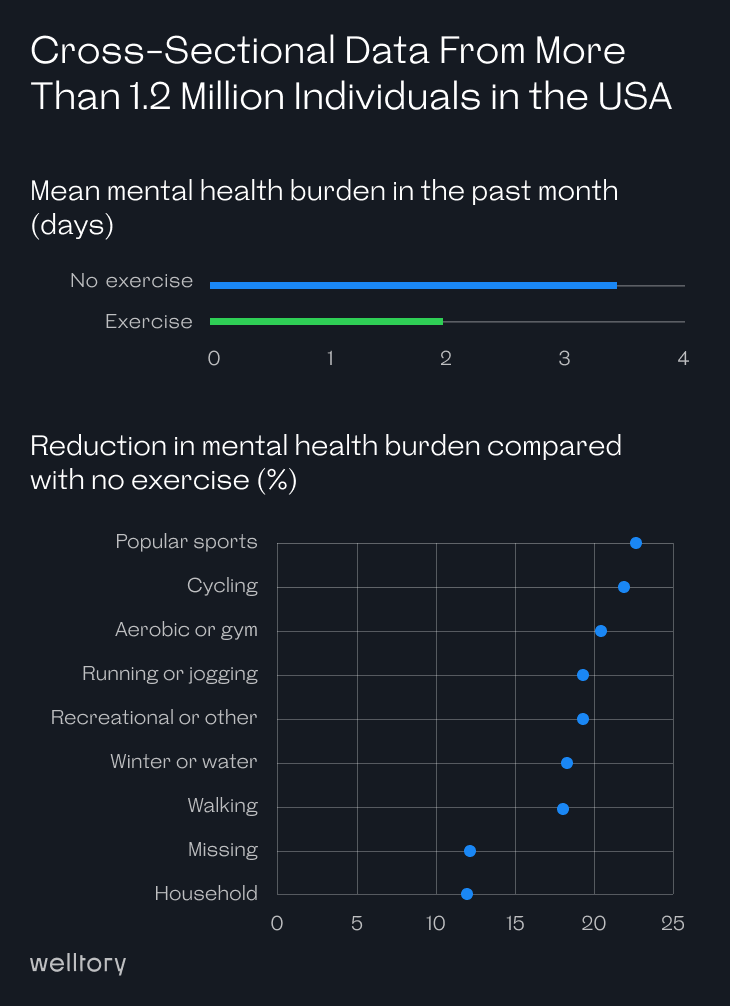
Though not as immediately rewarding (or easily felt), there are a host of other benefits of being physically active that future you will appreciate. Incorporating exercise into your life can prevent all kinds of health problems, keep your body flexible and strong, and can even make you live longer.
There has been tons of research into exercise’s ability to prevent chronic illnesses. Regular exercise can reduce your risk for heart disease, high blood pressure, osteoporosis, diabetes, and obesity. Exercise reduces LDL cholesterol (the bad kind), while increasing HDL (the good one), it also strengthens your heart, all of which lowers your risk of coronary heart disease. Hitting the gym also lowers your risk of developing 13 types of cancers, including breast, colorectal, and uterine cancers.
Initially developed in the 1960s to assess astronaut health in space, the heart rate variability measure has since evolved into a widely-used diagnostic and predictive tool used by a broad range of health professionals across the world.
As exercise floods your body with oxygen, vital nutrients and immune cells are being delivered to all of your parts, which makes them (and you) more resilient to viruses and bacteria, so you’re less likely to have sick days. Exercise also keeps your joints, tendons, and ligaments flexible. A more resilient immune system, and healthy joints means you’ll get to experience more of your life, at whatever speed you choose, for longer.
If you’re feeling good, sexy, and energetic, you’ll probably want to hang around to enjoy it for as long as possible. Though it’s not the elixir of eternal life, exercise has been shown to increase life expectancy, up to 6.9 years, according to one study.
While all the rewards of exercising sound amazing, there’s still the matter of actually doing the work to get them, which sounds hard. Luckily, you don’t have to go from couch to marathon, or even couch to gym to reap those benefits. Finding something you love and making a realistic time commitment is all you need to do to start.
The American Heart Association recommends at least 150 minutes of moderate aerobic activity or 75 minutes of vigorous aerobic activity a week, which you can accomplish by taking 30-minute walks five days a week. It’s also recommended to add muscle training, like lifting weights twice a week. If that seems like a lot, that’s because it is. Rather than trying to meet these recommendations right away, begin at whatever level makes sense to you now and use these guidelines instead:
In addition to choosing a form of exercise that’s fun, and that fits your life, don’t underestimate the motivational power of setting goals, tracking your progress and checking in with how you feel, all of which Welltory can help you with.
With Welltory’s Experiments feature you can see how physical activity impacts your mind and body. For example, you can take heart rate variability measurements before and after a workout. Watching your measurements improve, knowing that you did something good for yourself can act as a positive reinforcement, so you keep showing up. You can also see if working out at certain times of day is more impactful or easier, and therefore more pleasant.
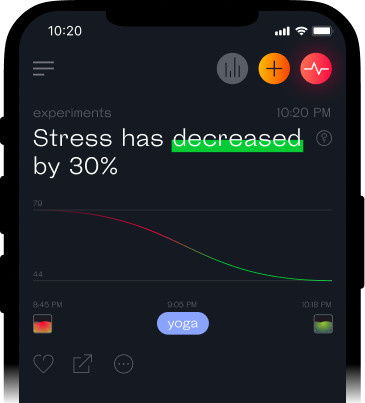
Welltory’s move plan takes into account your fitness level, and general well-being to give you personalized goals. By analyzing your heart rate and step count data from a fitness tracker, Welltory gives you realistic targets. These goals are recalculated every day to help you meet your fitness, walking, or even standing targets, while also giving you enough recovery time.
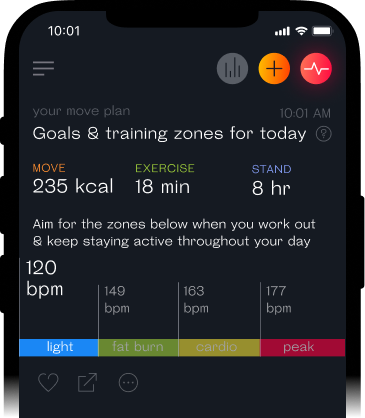
The move plan also provides goals for different heart zones, like how much time you should aim to spend on fat burn, performance building, and muscle strength.
You’ll also get a move report that analyzed yesterday’s physical activity, and lets you see how you did. The move plan displays metrics like step count, how often you stood up, minutes of cardio activity, so you can visualize where you are in meeting your goals. In addition you’ll get short tips to help you meet your goals if you fall short.
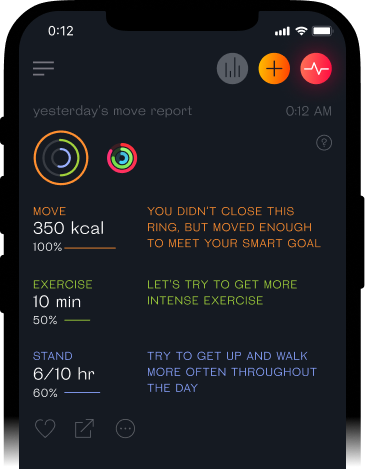
After each exercise session you’ll get a message analyzing your activity, including your heart rate, time spent in different heart rate zones, and the workout’s intensity. Depending on the type of exercise, you’ll get other measurements, like your stroke rate during a swim, or distance traveled if you’re out running. To get your analysis, you’ll need to be wearing a fitness tracker that’s synced with one of the aforementioned fitness tracking apps.
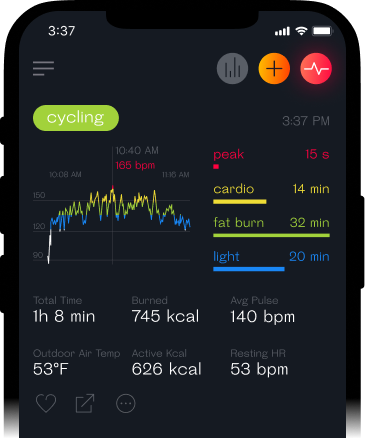
In addition to helping you keep an eye on your progress, and adjust the intensity of your fitness sessions, the workout analysis can be helpful to show your trainer. This will help them get a sense of where you are on your fitness journey and help them tailor their own plans for your needs.
It’s easy to see why fitness is important, but figuring out the how is not always so clear. Set realistic goals, choose fun activities and sign up for Welltory Pro with a 20% discount to help you assess and plan your workouts. Equally important? Don’t forget to be gentle with yourself, and be your own biggest cheerleader at every turn.

From manual pulse counts to the latest in app technology, dive into the transformative journey of heart rate monitoring
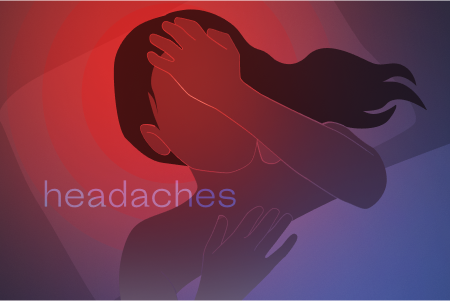
All you needed to know about headaches at night – types of nighttime headaches, their causes, possible treatment and how to avoid them.
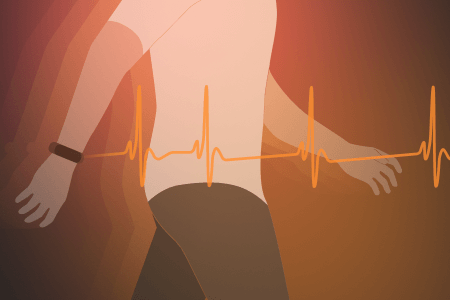
Learn to determine your target heart rate zone, explore factors influencing heart rate, and dive into monitoring methods, including the Welltory app

11 science-backed techniques will help you fall asleep, manage anger, fight stress and more.
Find out how heart rate variability measurements are taken with smartphone cameras and heart rate monitors.

Addiction is a habit that has become such a big part of your life that you experience withdrawal symptoms if you try to give it up.
 App Store
App Store
 Google Play
Google Play
 Huawei AppGallery
Huawei AppGallery
 Galaxy Store
Galaxy Store







